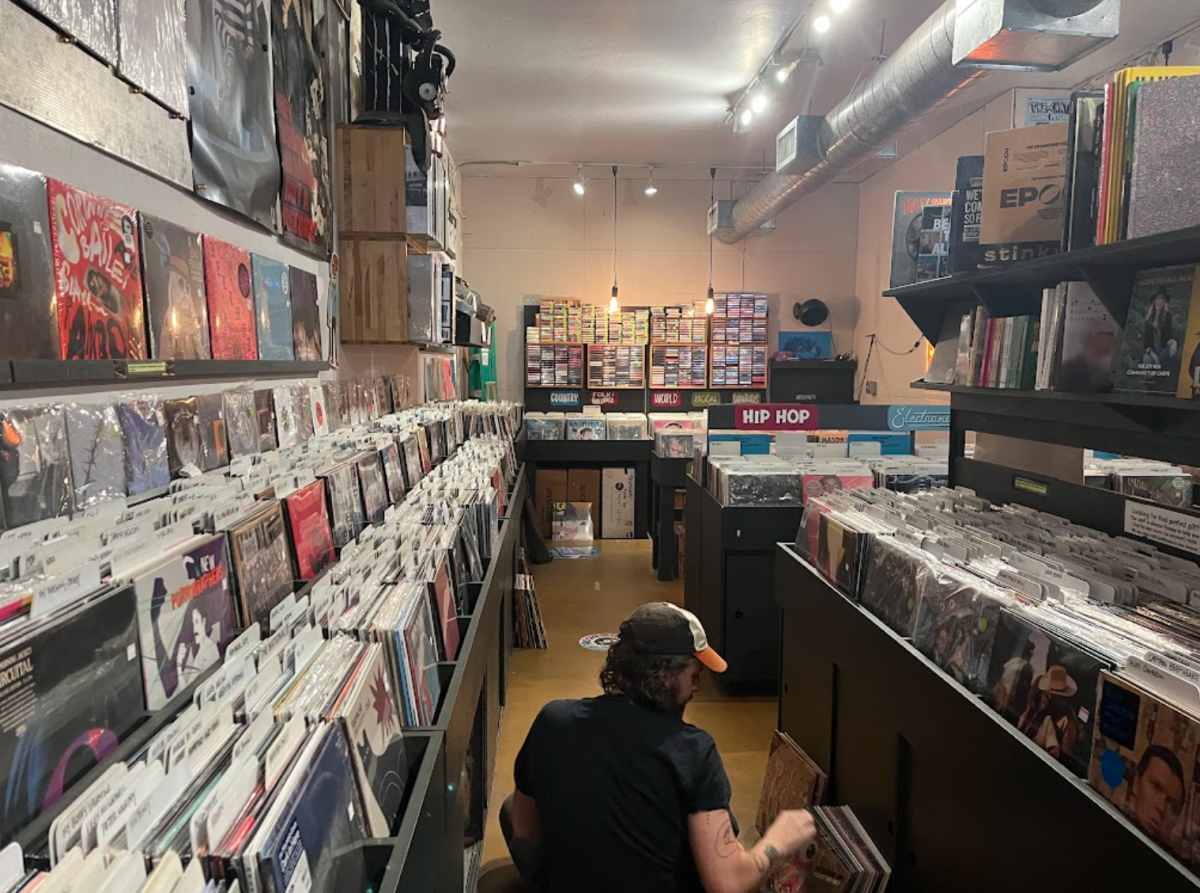Photo by Alex Gross ’24
By Alex Gross ’24
Before the word ‘indie’ became known to encapsulate an entire genre of art, spanning from artists such as Tame Impala or A24, it was a shorthand term for being independent. Independently filming movies, recording music, or creating art, indie culture was born from the do-it-yourself culture.
But the genrefication of independent music into a playlist on Spotify isn’t very reflective of the movement’s DIY roots.
The indie movement has a wide range of influences and styles, being more connected by the ethos of artistic liberty than any one genre of music. Thus, independently created and released music isn’t a genre in and of itself, as anything from punk rock to neo-soul music can be indie.
This misconstruing of what it truly means to be independent begs the question of what caused the genrefication of indie. And like 90% of the world’s problems, the answer can be traced back to one thing; money.
All indie artists start out on independent labels, but those who become commercially successful and more mainstream eventually move on to major labels. Even though these now-major label artists are no longer truly independent, their music is still often called indie.
Part of what makes indie art so magical is its cavalier defiance of commercial genres and label expectations, making the genrefication of indie so incredibly ironic.
There is nothing inherently wrong with signing to a major label or accumulating a more widespread appeal, (although some hardcore fans may deem this “selling out”), but we cannot continue to label these artists as indie.
Just because artists like Kevin Parker and Mac Miller made the switch to major labels though, it doesn’t mean that they left their indie spirit behind. The way they create music or express their ideas may still be left of the mainstream, inspiring others to make art aside from monetary incentive.
The only problem this poses is that it creates blurred lines with truly independent artists and industry plants who are created by record labels to appeal to the mass ‘indie’ sound.
The term ‘industry plant’ is often tossed around colloquially as an insult to artists with massive pop appeal, but in reality they are artists who have major label backing while simultaneously presenting themselves as ‘home-grown’ and having an organic following.
Nothing truly kills the creative process more than the monetization of art, and the desire for monetary gain is something that simply cannot coexist within the realms of indie music.
“I realized how incredibly calculated music has become for the most part,” said indie savior Mac DeMarco on a recent podcast interview with Emma Chamberlain. “It feels like it’s not about the music as much anymore, it’s about the way it’s perceived. And I figured out how to fix it – all the money, we gotta burn all the money.”





















